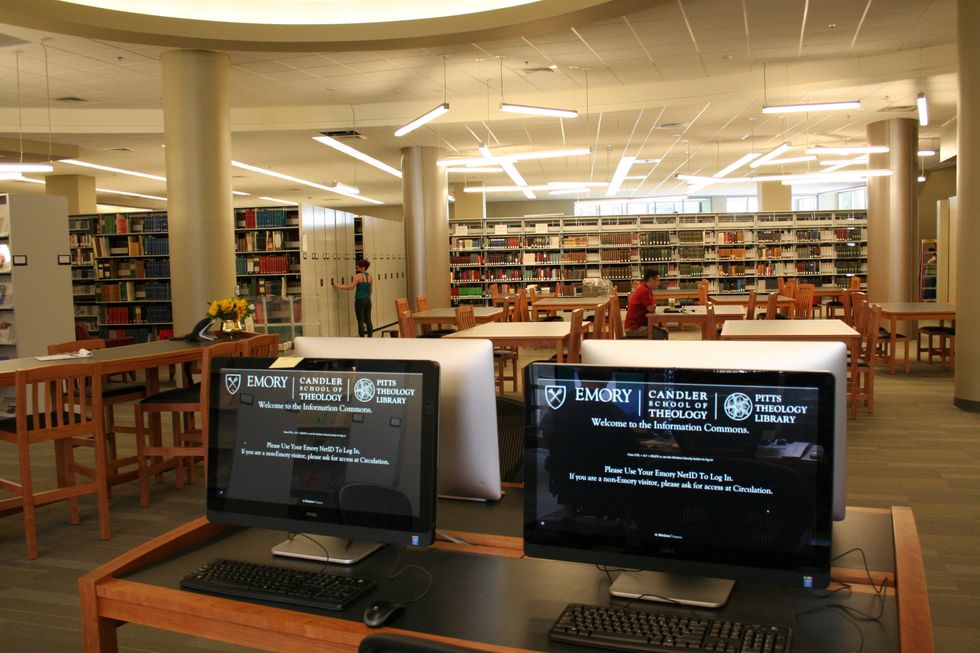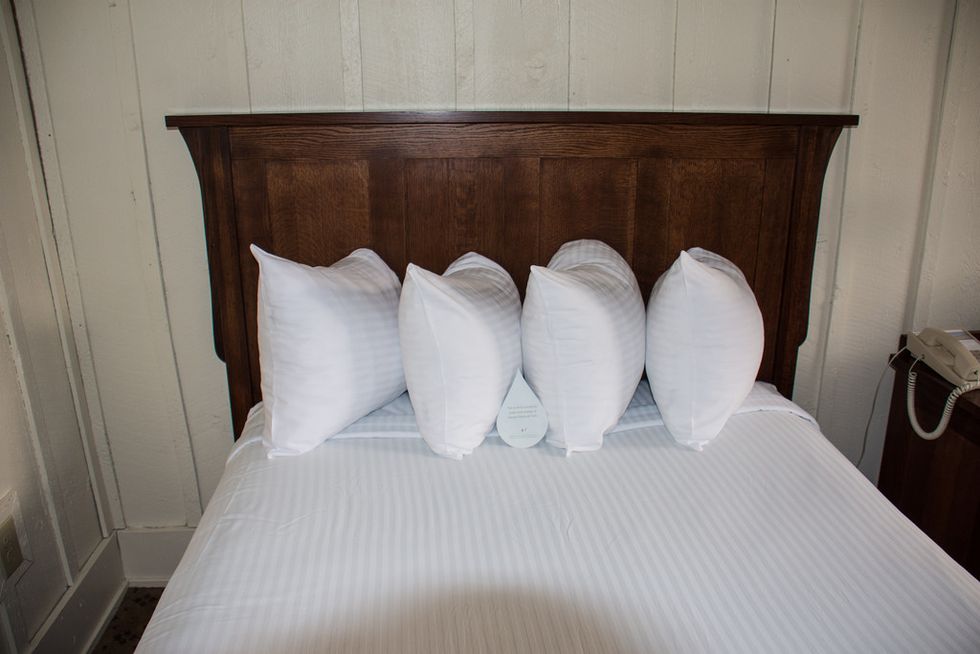Ilhan Omar Revisited: My Mistake and a Damaged Discourse
There's more to the controversy than meets the eye.
I think it does best to be upfront and honest in this scenario, as in all scenarios: I made a mistake.
I usually don't mind staking such a claim. I acknowledge and engage with my imperfection on the daily. Even still, when I failed to provide full content and context of a quote that landed Rep. Ilhan Omar (D-MN) in hot water back in late February/early March, I can't help but say that I blundered.
At the time I was content to join the widespread denunciation of Rep. Omar as anti-Semitic, or at least allow enough spacing to suggest that such a notion could be true.
And while I can't entirely redact what I said back in March, I didn't necessarily do the complexity of the situation justice.
But first, there is the question of timing. Why am I writing about this now?
Firstly, given the heated nature of the situation, I knew it needed the time. Although I shared my past article only once on Facebook, it garnered a very strong reaction from folks who disagreed with me. Which is absolutely fine. Variety is the spice of life, as they say, and if everyone were to blindly affirm my every whim and postulation I think I would be a much less reflexive person. Yet, I knew if I were to rush back in headlong, the dialogue could be more reactionary than anything else.
Secondly, situations outside of my control exacerbated the Palestine-Israel debate within the Emory community. I'm referring predominantly to fliers that were placed on the doors of Emory students by a pro-Palestinian student organization, the desecration of an ablution room at Rollins School of Public Health, and the response to these incidences by Emory University President Claire Sterk and her administration.
In such an environment, I knew I could not address my mishap in any way that would contribute to a constructive conversation precisely because in said time there was often little stomach for dispassionate talk. Perhaps more precisely there was great confusion, commotion, and competing narratives among the student body, so much so that I just could not see how I would fit myself into the puzzle in a positive way.
Sprinkle into that equation the fact that finals season hit particularly hard, and I found myself caught between a rock and a hard place.
So, here it is now. My reassessment of the situation, for what it's worth. Trust me, I have no delusions about my own grandeur, so if you've ignored this or discounted what I've said and will continue to say, I can rest easy with that. I'm not here to assign blame to those who disagree with me. Rather, I want to make sure I rectify my own error for the record, and for all those who are generous enough to listen.
When I wrote the original article in March, I was critical of the comments Omar made supposedly in regard to a suggestion of Jewish dual identity to the United States and to Israel. Here is her quote in full: "I want to talk about the political influence in this country that says it is okay to push for allegiance to a foreign country."
When I drafted my article, I did not include the section of her statement citing "political influence." In fact I did not provide a direct quotation at all, instead simply providing a link to a longform piece that had a portion of that quotation buried within it. For an explanation I can only attribute my negligence of the situation.
While I had anticipated some preemptive background knowledge that my readers would bring to the article, a direct quotation is perhaps the only way to confirm that all parties engaging with such a piece have the full breadth and scope of the conversation. Depriving my readers of that was grossly unfair on my part.
In prefacing my article, I read. I read extensively. And yet in all my reading, from Politico to the New York Post, I did not find this quote printed in its entirety. It was often not given its due diligence. And smothered with that narrative, I was all but too happy to indulge.
Now, to specify what this alters in my mind about the Omar controversy: "political influence" is not the same thing as the Jewish people writ large. Many in the news media glossed over this context and took it to mean all Jews. There seems to me an attempt on the part of Omar (although I will discuss my evaluation of the effort behind said attempt in a moment) to qualify this as a criticism of PACs and Super PACs pushing an agenda which wipes Israel's slate clean and puts the onus for the continuation of the conflict almost entirely on the Palestinian people. Obviously, the criticism of a PAC is far different from that of a religious body, especially a persecuted one.
This is not a narrative that was given appropriate room in virtually any media I read prior to writing the article.
I should have been more mindful when I spoke.
I should have been more mindful of the fact that as a subject dealt with in increasingly sacred terms over the years, any intonation of critique against the state of Israel is sure to bring some kind of condemnation. Just as the flag and other portions of American symbology has been mythologized into a sort of civil religion (see Kaepernick), so too has discourse about the Palestine-Israel conflict. And in writing about a Muslim woman whose brothers and sisters in Islam are at the forefront of the divide in Palestine, I should have better qualified and quantified Rep. Omar's position.
I should have been more mindful…and Omar should have too.
Because, as much as I screwed up in joining in a singular angle of attack within a damaged discourse (one that culminated in vicious mockery and horrific cartooning of the Representative) Rep. Omar and her Democratic colleagues must need be mindful of the verbiage they use when addressing the conflict.
Now, that doesn't mean that no Jewish American is above reproach. Goodness knows Republican criticism of George Soros stems little from his faith. But that does not exempt Muslim Americans (or any Americans for that matter) from criticism either.
As this Vox article outlines, the vagueness of Rep. Omar's commentary, even in the couching of her critiques within the frame of unwieldy "political influence," provides space for anti-Semites to root their arguments. David Duke being the most prominent ant-Semite to come to Omar's defense, there is no denying the danger of this. The possibility of directly harboring anti-Semitic sentiment by Omar herself aside, making space for the promulgation of said sentiment is certainly no better.
There is also the question of identity, and the fact that although not all Jews have been offended by Omar's commentary, some very much have. They also are not all of the political punditry whose job it is to home in on such statements, and thus their critiques cannot be thrown out on that selfsame political whim. There are real feelings here. If Democrats wish to be all encompassing and all inclusive (especially as the 71% of Jewish voters for Hilary demonstrates strong support from that demographic) then they cannot dismiss such criticisms, even if it means members of their own ranks must guard their language in ways that are ironclad.
I would also be remiss, I think, in this recap if I did not denote the disgusting ways in which those on the right have exploited this controversy for political cheap shots, sometimes even encouraged by the party apparatus. The most glaring example that comes to my mind is that of a poster in the West Virginia capital building equating Rep. Omar with the al-Qaeda terrorists who committed 9/11.
Such targeting of Omar, almost inherently because of her race and religion, is the kind of putrid behavior that has become all too common in the United States. It is a putridness that stems almost directly from Donald Trump. It is a putridness that has now become part of the normalcy of the landscape, left and right.
Yet, it is luckily through this atmosphere of stink that I have found dialogue with some of those who disagreed with me. It is in part by their efforts that this article is even possible. Elsewise, there is the very real possibility I might have wallowed in my own preconception without fully engaging with the compounding gravity of this situation.
Bottom line?
I made a mistake. I should have quoted Omar in full. And yet, Omar also need be wary of how her commentary is issued; of what it its ignorant and to whom it offers space to multiply hate and bigotry.
At the end of the day, words matter. That goes for all words, no matter their origin.


































